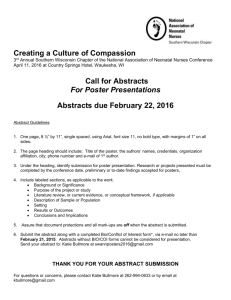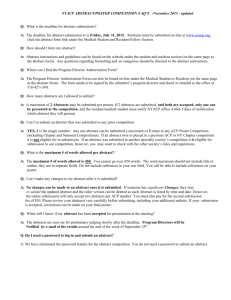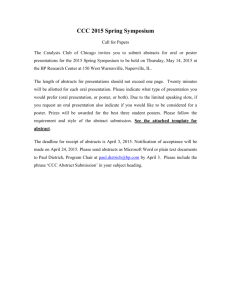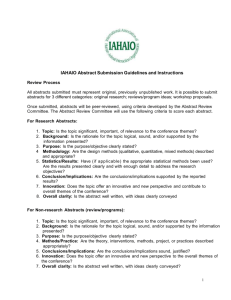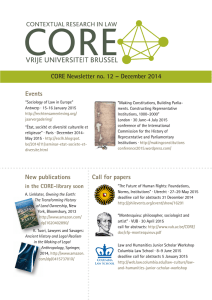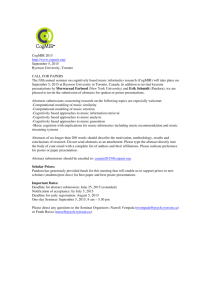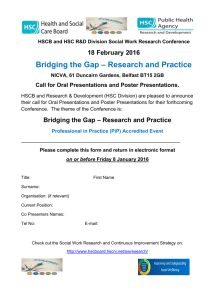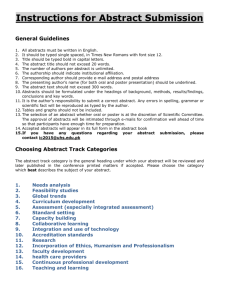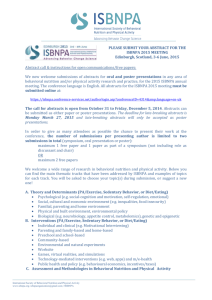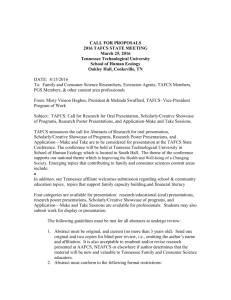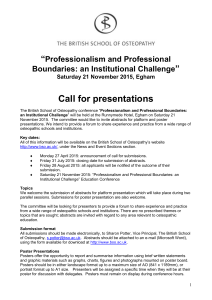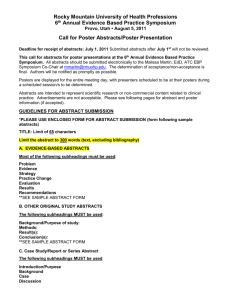Standard and variation in second language education: a cross
advertisement
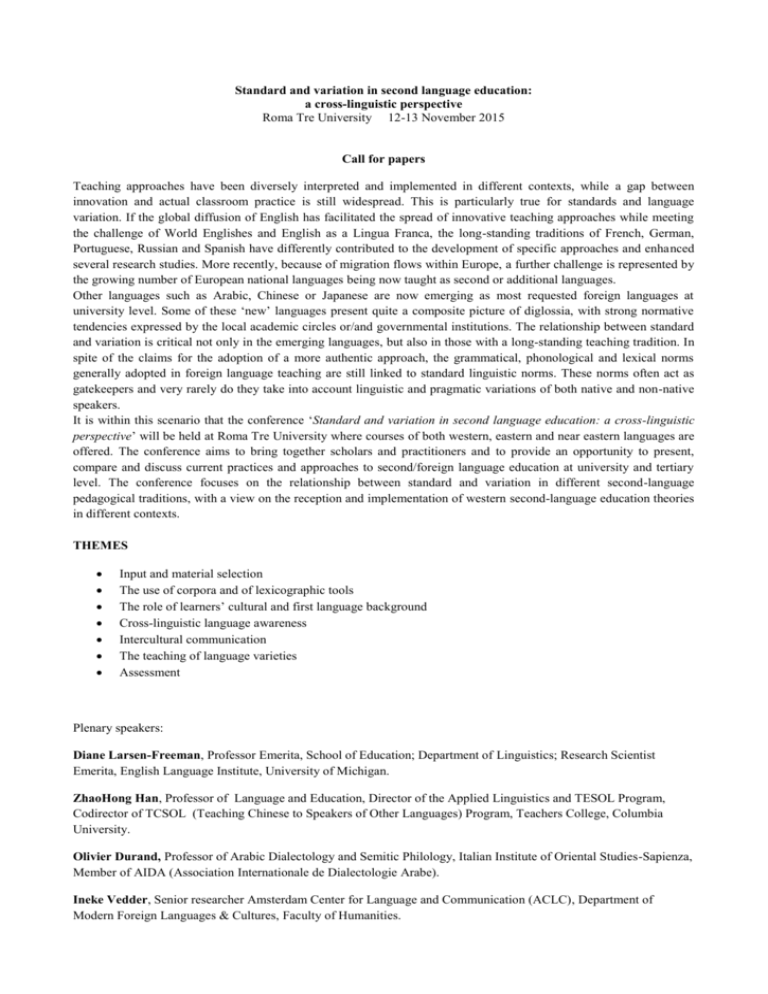
Standard and variation in second language education: a cross-linguistic perspective Roma Tre University 12-13 November 2015 Call for papers Teaching approaches have been diversely interpreted and implemented in different contexts, while a gap between innovation and actual classroom practice is still widespread. This is particularly true for standards and language variation. If the global diffusion of English has facilitated the spread of innovative teaching approaches while meeting the challenge of World Englishes and English as a Lingua Franca, the long-standing traditions of French, German, Portuguese, Russian and Spanish have differently contributed to the development of specific approaches and enhanced several research studies. More recently, because of migration flows within Europe, a further challenge is represented by the growing number of European national languages being now taught as second or additional languages. Other languages such as Arabic, Chinese or Japanese are now emerging as most requested foreign languages at university level. Some of these ‘new’ languages present quite a composite picture of diglossia, with strong normative tendencies expressed by the local academic circles or/and governmental institutions. The relationship between standard and variation is critical not only in the emerging languages, but also in those with a long-standing teaching tradition. In spite of the claims for the adoption of a more authentic approach, the grammatical, phonological and lexical norms generally adopted in foreign language teaching are still linked to standard linguistic norms. These norms often act as gatekeepers and very rarely do they take into account linguistic and pragmatic variations of both native and non-native speakers. It is within this scenario that the conference ‘Standard and variation in second language education: a cross-linguistic perspective’ will be held at Roma Tre University where courses of both western, eastern and near eastern languages are offered. The conference aims to bring together scholars and practitioners and to provide an opportunity to present, compare and discuss current practices and approaches to second/foreign language education at university and tertiary level. The conference focuses on the relationship between standard and variation in different second-language pedagogical traditions, with a view on the reception and implementation of western second-language education theories in different contexts. THEMES Input and material selection The use of corpora and of lexicographic tools The role of learners’ cultural and first language background Cross-linguistic language awareness Intercultural communication The teaching of language varieties Assessment Plenary speakers: Diane Larsen-Freeman, Professor Emerita, School of Education; Department of Linguistics; Research Scientist Emerita, English Language Institute, University of Michigan. ZhaoHong Han, Professor of Language and Education, Director of the Applied Linguistics and TESOL Program, Codirector of TCSOL (Teaching Chinese to Speakers of Other Languages) Program, Teachers College, Columbia University. Olivier Durand, Professor of Arabic Dialectology and Semitic Philology, Italian Institute of Oriental Studies-Sapienza, Member of AIDA (Association Internationale de Dialectologie Arabe). Ineke Vedder, Senior researcher Amsterdam Center for Language and Communication (ACLC), Department of Modern Foreign Languages & Cultures, Faculty of Humanities. TYPES OF PRESENTATION Proposals are invited for Paper presentations and Poster displays. The Paper presentation discusses and describes work that the presenter is doing or has done in relation to theory, research or practice (Duration: 30 minutes, including 10 minutes for discussion). The Poster display enables participants to post their ideas/thoughts/materials on a notice board and answer queries/respond to comments from participants. Poster sessions will be scheduled as part of the conference programme and will be first introduced by the presenters in a special session. Specific guidelines for poster presentations will be sent together with the acceptance notification ABSTRACT SUBMISSION: March 15, 2015 Abstracts can be in English or Italian for both paper and poster presentations. Abstracts should be 300 words long (exclusive of title and references). A list of three to five keywords has to be included at the end of the abstract. Titles should not exceed 12 words. Abstracts should be submitted as a PDF attachment. Co-authored abstracts must be submitted by the first author only, but they should include all the co-presenters’ data. The presenter(s)'s and co-presenter(s)’s name(s), address(es), affiliation(s), and brief biodata should not be included in the abstract. These must be e-mailed together with the abstract, but as a separate PDF attachment. Each person may submit no more than one single-authored abstract in addition to one joint-authored abstract Abstracts submitted for paper presentations and poster sessions will be evaluated by at least two reviewers. Abstracts should be submitted by March 15, 2015 by email to: SLEdu@uniroma3.it The object of the e-mail should state: SLEdu 2015 Paper submission (in case of papers) SLEdu 2015 Poster submission (in case of posters) PUBLICATIONS A selection of the papers will be published in an online book. The deadline for full manuscript submissions is January 31st, 2016. IMPORTANT DATES March, 15, 2015: deadline for submission of all abstracts April, 15, 2015: notification of acceptance by email June 1st, 2015: deadline for early registration January 31, 2016: deadline for full manuscript submissions Organizers: Lucilla Lopriore Elena Nuzzo Chiara Romagnoli Cristina Solimando Department of Foreign Languages, Literatures and Cultures, Roma Tre University
